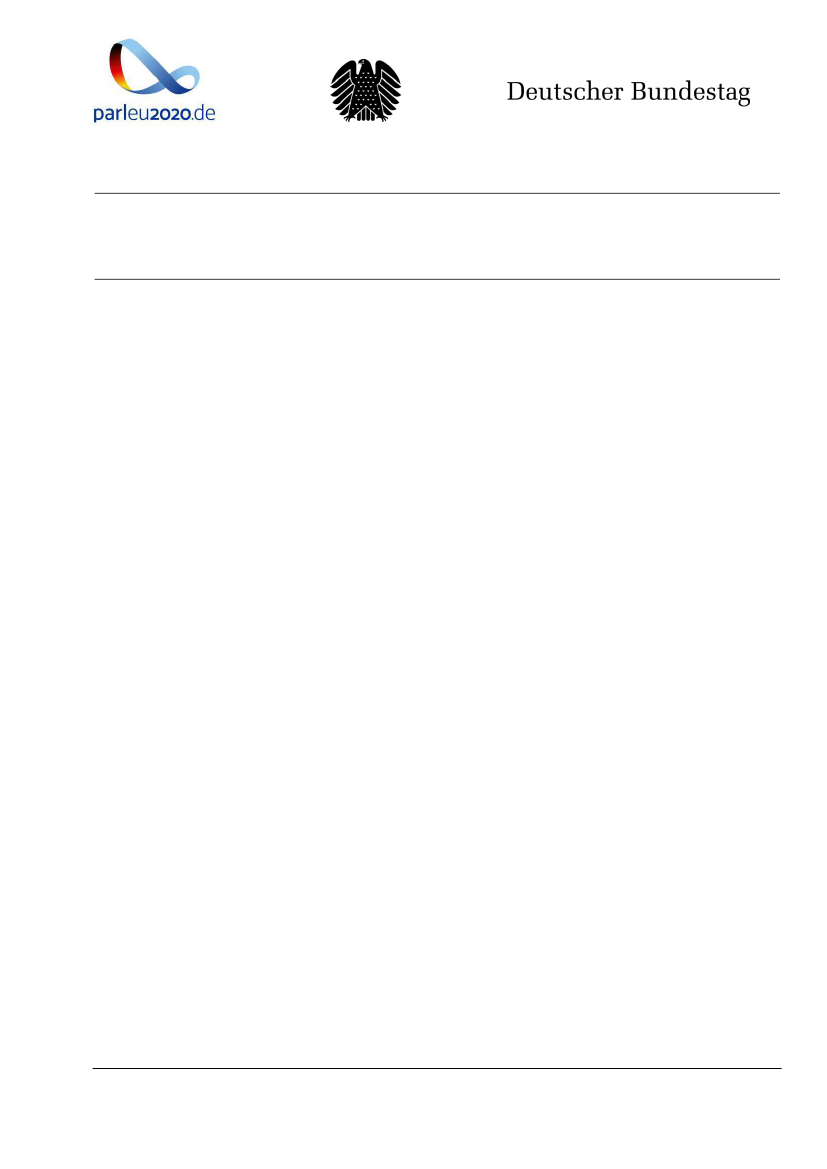
Europe in the pandemic: research and innovation for a resilient health
system
Statement of the Chair
The Interparliamentary Conference entitled
Europe in the pandemic: research and innovation
for a resilient health system was held on 7
September 2020 as part of the parliamentary
dimension of the German Presidency of the Council. Because of the exceptional circumstances
created by the COVID-19 pandemic, it took the form of a video conference. The participants were
Members of Parliament from 21 EU member states, Members of the European Parliament and, as
observers, Members of Parliament from Norway and the United Kingdom. The conference
assessed the
current state of play regarding the impact of the pandemic on the member states’
health systems and considered proposals for closer cooperation in the health sector, fresh ideas
for the promotion of health research and ways of managing crises with the aid of digital
instruments.
We, the conference presidency,
•
express our solidarity with infected people throughout the world and with the hardest-hit
countries; we declare our deep respect for the medical personnel and other staff in the
various health systems; we emphasize the importance of protecting public health and of
resilient health systems and are also aware that national parliaments bear a large share of
responsibility for shaping their countries’ health systems;
acknowledge the effective response, within the framework of the WHO recommendations,
of the member states and the EU institutions, especially the Commission, to the outbreak
of the COVID-19 pandemic; we advocate even closer local, national, European and
international cooperation in the areas of health and research, from which prevention and
the quality of medical care in all countries can benefit; solidarity and sovereignty should
be the key concepts underlying this cooperation, which should also serve to facilitate
future access to vaccines;
regard it as core political task for the EU and its member states to ensure, even in crises,
that the population is supplied at all times with essential medicinal products and medical
equipment; to improve the coordination of responses to pandemic developments within
the EU; we need more cooperation and better information exchange between member
states;
believe that increased use of digital technology, leading to better and faster data exchange
and ultimately to a common European Health Data Space, are essential and should be
targeted so that infection events can be identified; this also entails achieving compatibility
between the various coronavirus apps; the potential and the utility of such apps depends
•
•
•
7 September 2020